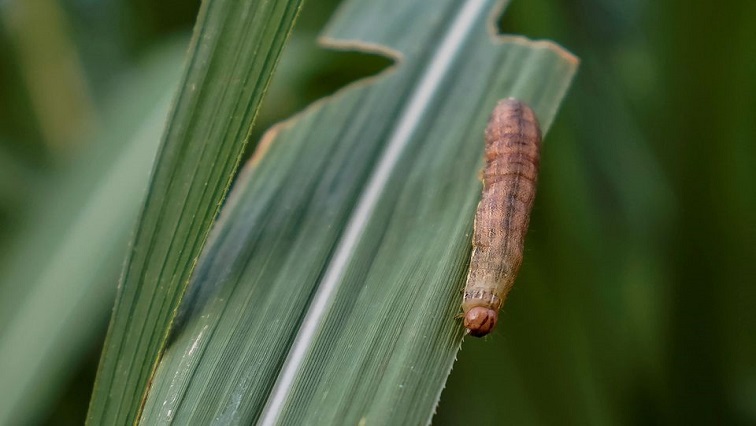-
[File Image] An armyworm, which usually comes out at night, is seen on sugar cane crop around dusk at a village of Menghai county in Xishuangbanna Dai Autonomous Prefecture.
An outbreak of the African armyworm has ravaged crops in some parts of the Limpopo province. Farmers in the Capricorn, Waterberg and Sekhukhune Districts have been the hardest hit, with many reporting significant damage to their crops.
The African armyworm is one of the most destructive crop pests. The outbreak is threatening the livelihoods of farmers in the regions.
The African armyworm is known for its voracious appetite and ability to destroy entire fields. The current outbreak has devastated some farms in Limpopo. The affected farmers have expressed their frustration and concern for their livelihood.
26-year-old Wendy Moshakga, from Moletji outside Polokwane, says the pest has significantly affected her cabbage farm. She also says that her maize farm, which is just a few weeks away from harvest has also been badly affected by the armyworm.
“As a small-scale farmer, you will understand that we that we are using everything that we have for that particular production so if we lose the production, it means it is over for us. Because we are still starting, we are still small. So that is how it has affected us,”
Video: African Armyworm – Outbreak ravages crops in parts of Limpopo: Dipepeneneng Serage
Moshakga is appealing for help. “We are pleading with the government especially the agriculture department to supply us with some of the implements. The outbreak travels through grass so if we had tractors maybe we could have removed the weeds to better control the spread of the outbreak.”
The Limpopo Agriculture MEC, Nakedi Kekana has confirmed the severity of the outbreak and that they are working with farmers to find a solution.
“We can confirm that indeed we have experienced the outbreak of the army earthworm that has ravaged most of the districts in our province for instance the area of Waterberg, and much damage has happened in Capricorn districts in several areas around Mamabolo area,”
MEC Kekana has also urged farmers to report any sightings of the armyworm to their local offices, so that prompt action can be taken to prevent further damage.
“I think most of the people who started to recognize this armyworm are the farmers themselves because during the time of harvesting that is when they realized there are some kind of worms that are coming from their crops and not only from their crops in the form of fields but from the ground. There were a lot of worms coming from the ground hence the people were able to see with their naked eyes,”
As the situation continues to unfold, farmers are holding their breath, hoping that a solution can be found to save their crops and livelihoods. The Limpopo Department of Agriculture is also urging farmers to remain vigilant and to take all necessary precautions such as pest management techniques to protect their crops from the devastating effects of the African armyworm.











